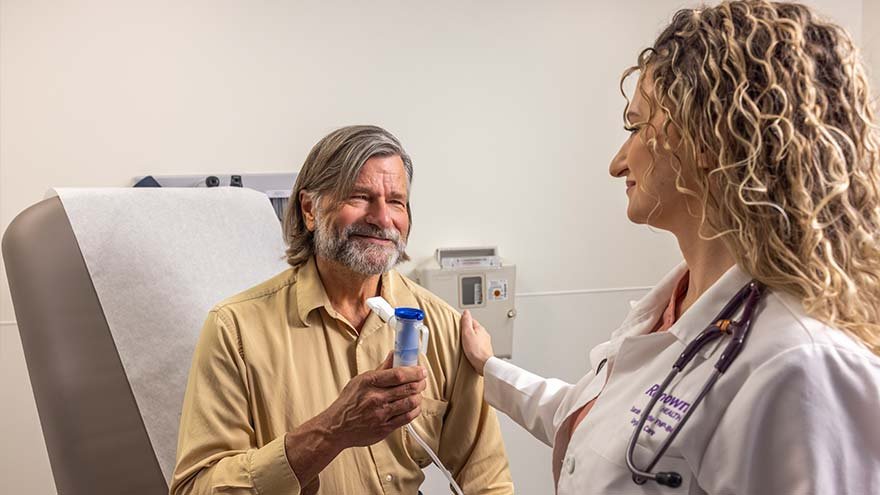

With spring in full swing and summer on the horizon, it’s the perfect time to enjoy the outdoors. But as temperatures rise, staying hydrated becomes more important than ever. So how much water do you really need—and how can you make it easier to keep up? Aurosis Reddy, DO, a family medicine provider with Renown Medical Group, shares helpful hydration tips.
How Much Water Is Enough?
Experts agree that recommended daily water intake can vary depending on different factors such as your weight, metabolism, location, diet, physical activity, and health. As a rule of thumb, women should aim for a daily fluid intake of 91 ounces, and men should aim for 125 ounces. It is important to listen to your body and recognize when you might need to increase your water intake. For example, if you’re partaking in strenuous exercise, or spending time outside in the heat, you’ll want to give your body more water and electrolytes to function properly.
How Can I Tell If I Am Dehydrated?
- Decreased coordination
- Fatigue
- Less urination
- Dizziness
- Dry, sticky lips and mouth
- Increased thirst
- Headache
Urgent Care

What to Do If You’re Dehydrated
Treatment for dehydration depends on the severity of your symptoms. If you have any of the mild to moderate symptoms listed above, you may want to see a doctor or visit an urgent care. If you have any of the following severe symptoms, you will need to call 9-1-1 or visit the emergency room:
- Dark colored urine
- No urination
- Severe diarrhea or vomiting
- Muscle cramps
- Weakness and dizziness
- Confusion
- Sunken eyes
- Loss of consciousness or alertness
Tips for Staying Hydrated
- Take regular water breaks
- Start your morning right by reaching for a glass of water when you wake up
- Drink water before and after eating
- Avoid relying on sodas, alcohol, and caffeinated beverages to hydrate you
- Drink water before and after a workout and every 20 minutes during a workout
- Carry a refillable water bottle with you while running errands
- Set a phone reminder to hydrate at least once every hour
- Infuse your water with natural flavors such as limes, lemons, mint, oranges, berries, cucumbers, and other fruits
- Pay attention to symptoms of dehydration
Related Blogs


Getting Care During The Holidays
